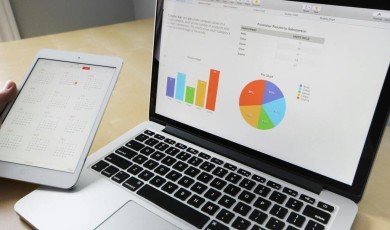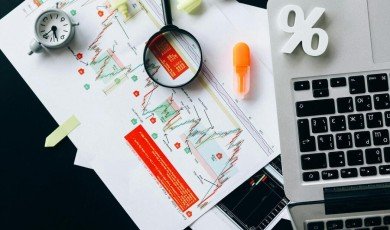
In today’s digital-first economy, data is more than just numbers — it’s knowledge, opportunity, and power. Every click, transaction, or customer interaction generates valuable information that, when analyzed properly, can reveal insights that shape smarter decisions. The key to success in this environment lies in one powerful methodology: the data science approach. Used correctly, it transforms raw data into actionable intelligence that drives innovation, efficiency, and growth.
Understanding the Data Science Approach
At its core, the data science approach is a structured process for extracting meaning from data. It combines statistical analysis, machine learning, and computational models to identify patterns, predict outcomes, and support better business strategies. Rather than relying on intuition, companies use evidence-based decision-making supported by measurable trends.
The process typically involves five main stages: data collection, data cleaning, analysis, interpretation, and implementation. Each step is crucial, but the true value comes from integrating these phases into a continuous improvement cycle. This allows organizations not only to understand what happened but to predict what will happen next — and to act before competitors do.
Why Data Science Matters More Than Ever
In 2025, every successful company has one thing in common: the ability to harness data effectively. Businesses no longer compete solely on price or product; they compete on intelligence. Those that understand customer behavior, optimize operations, and anticipate market changes have a significant advantage.
From e-commerce to healthcare, finance to manufacturing, the data science approach has revolutionized how industries operate. Retailers use predictive analytics to forecast demand, hospitals use data models to improve patient care, and governments rely on analytics for urban planning and sustainability initiatives.
In the language and localization sector, for example, data-driven insights help optimize translation services by analyzing trends in demand, identifying linguistic patterns, and improving accuracy through AI-assisted workflows. The integration of data science makes these services faster, more precise, and more aligned with customer needs.
The Smart Way to Apply the Data Science Approach
Using data science effectively requires a clear plan. It’s not just about collecting information — it’s about asking the right questions and applying the right models. Here’s how to use the data science approach the smart way:
-
Define a clear goal.
Start by identifying the problem you want to solve or the opportunity you want to explore. Data without direction leads to noise, not knowledge. -
Collect relevant and high-quality data.
Reliable insights depend on reliable inputs. Ensure that your data sources are accurate, up to date, and representative of your market or audience. -
Use the right tools.
Leverage advanced analytics platforms, visualization software, and machine learning frameworks. Tools like Python, R, and TensorFlow empower teams to turn data into clear, visual stories. -
Collaborate across teams.
Data science isn’t just for analysts. Marketing, operations, sales, and IT all bring unique perspectives that help contextualize the data. Collaboration ensures insights are practical and actionable. -
Test, learn, and adapt.
A data science strategy should evolve. Build feedback loops to refine models and continually improve predictions. Flexibility is what turns information into innovation.
Human Intelligence Meets Artificial Intelligence
One of the biggest misconceptions about data science is that it replaces human judgment. In reality, it enhances it. Machines process information faster than any person ever could, but humans bring intuition, ethics, and creativity to decision-making. The most effective data-driven organizations are those that combine both strengths — letting machines handle complexity while people focus on interpretation and strategic action.
This hybrid approach also applies to global communication. For example, AI tools are transforming translation services, but human linguists remain essential for context, tone, and cultural adaptation. Just as in data science, the smartest results come from blending technology and human expertise.
From Insight to Innovation
The true goal of data science isn’t just analysis — it’s transformation. When companies understand their data, they can innovate with purpose. Marketing campaigns become more targeted, supply chains more efficient, and customer experiences more personal. Data reveals what works, what doesn’t, and where the next opportunity lies.
By applying the data science approach intelligently, businesses can move from being reactive to proactive — predicting outcomes before they happen and making decisions that lead to measurable growth. This mindset turns information into a competitive weapon and positions organizations at the forefront of their industries.
Challenges and Ethical Considerations
While the potential is immense, using data responsibly is essential. Privacy laws, data protection regulations, and ethical boundaries must guide every analysis. Companies must be transparent about how they collect and use information, ensuring that data-driven innovation respects individual rights and builds trust.
Bias is another challenge. Algorithms can unintentionally reflect human prejudices if not monitored properly. The solution lies in maintaining diverse teams, auditing data sources, and continuously testing models for fairness.
Responsible data science is not only a technical skill — it’s a moral obligation.
The Future Belongs to the Data-Literate
The coming years will reward those who can interpret, communicate, and act on data insights. Data literacy will become as essential as digital literacy once was. Professionals across every field — from marketing and education to engineering and healthcare — will benefit from understanding the logic and potential behind data science.
Organizations that invest in data culture today are shaping the leaders of tomorrow. By using the data science approach wisely, they are building not just smarter businesses but smarter societies.
Smarter Thinking Starts with Data
The data science approach is more than a technical framework — it’s a way of thinking. It empowers organizations to make decisions grounded in facts, guided by insight, and driven by purpose. When applied strategically, it bridges the gap between data and vision, numbers and meaning, technology and humanity.
In a world overflowing with information, the smartest way forward is clear: use data intelligently, ethically, and creatively. That’s the essence of the data science approach — and the foundation of a future built on understanding.








